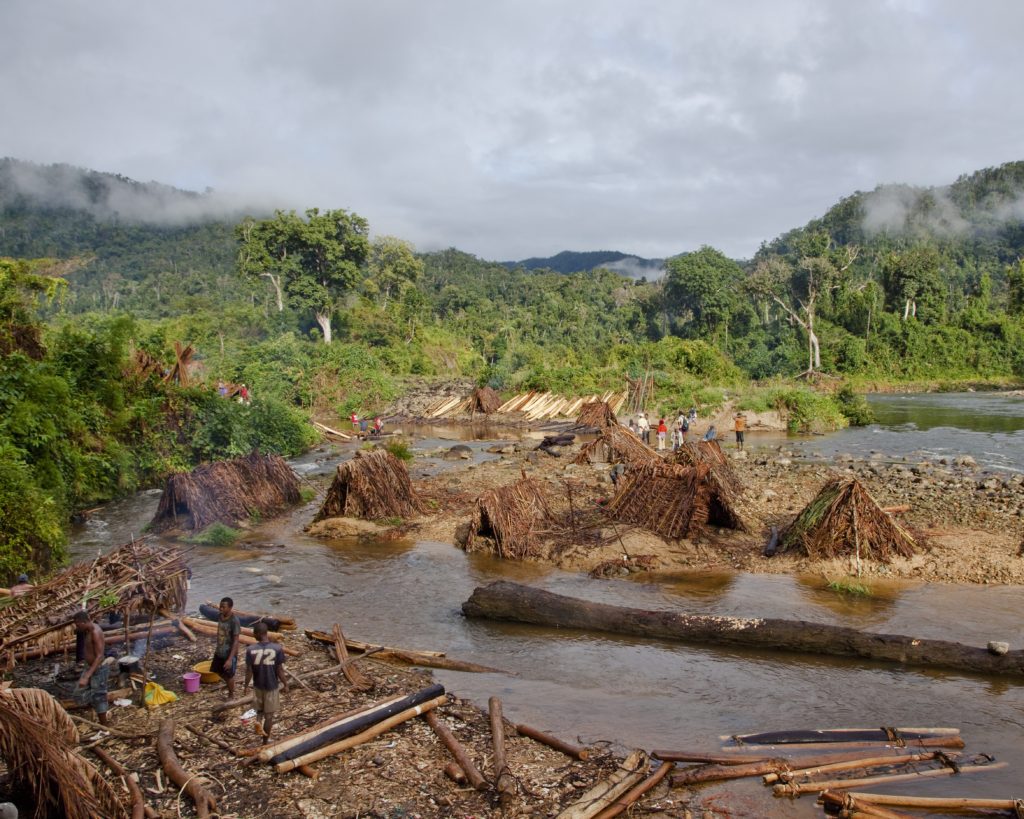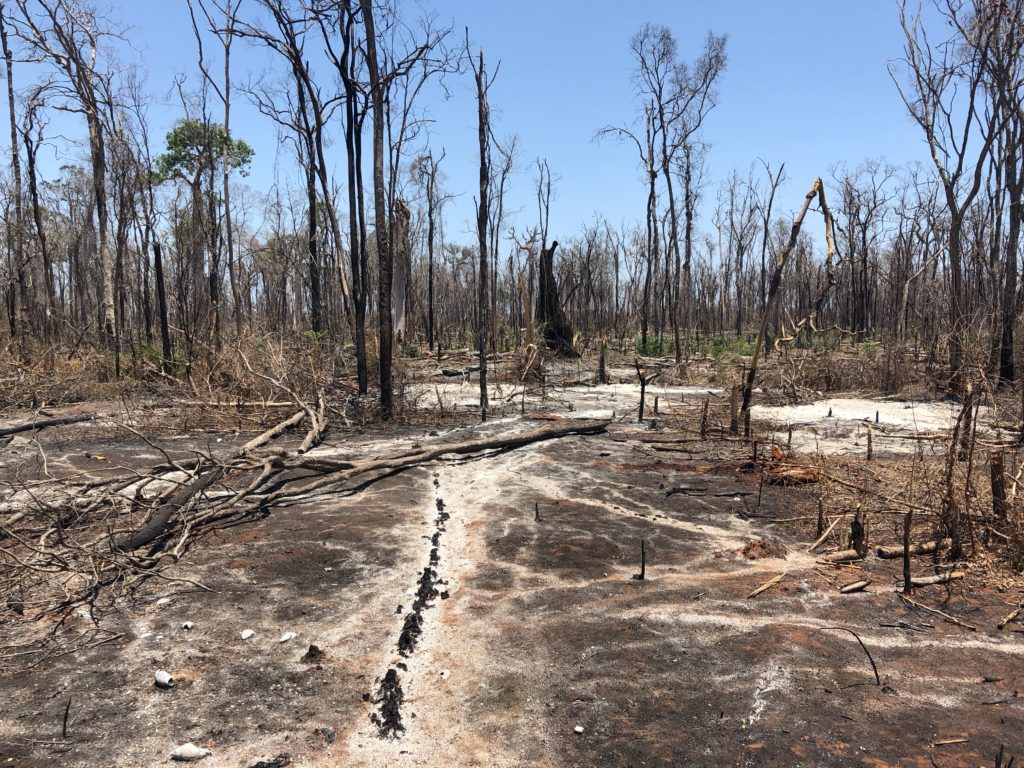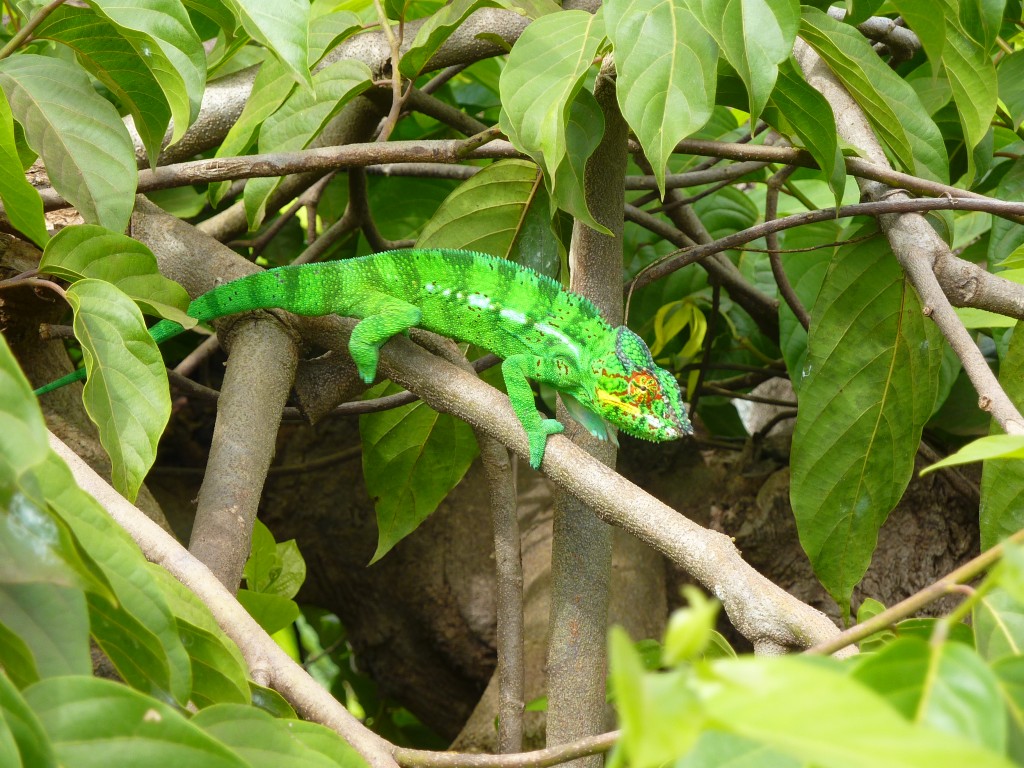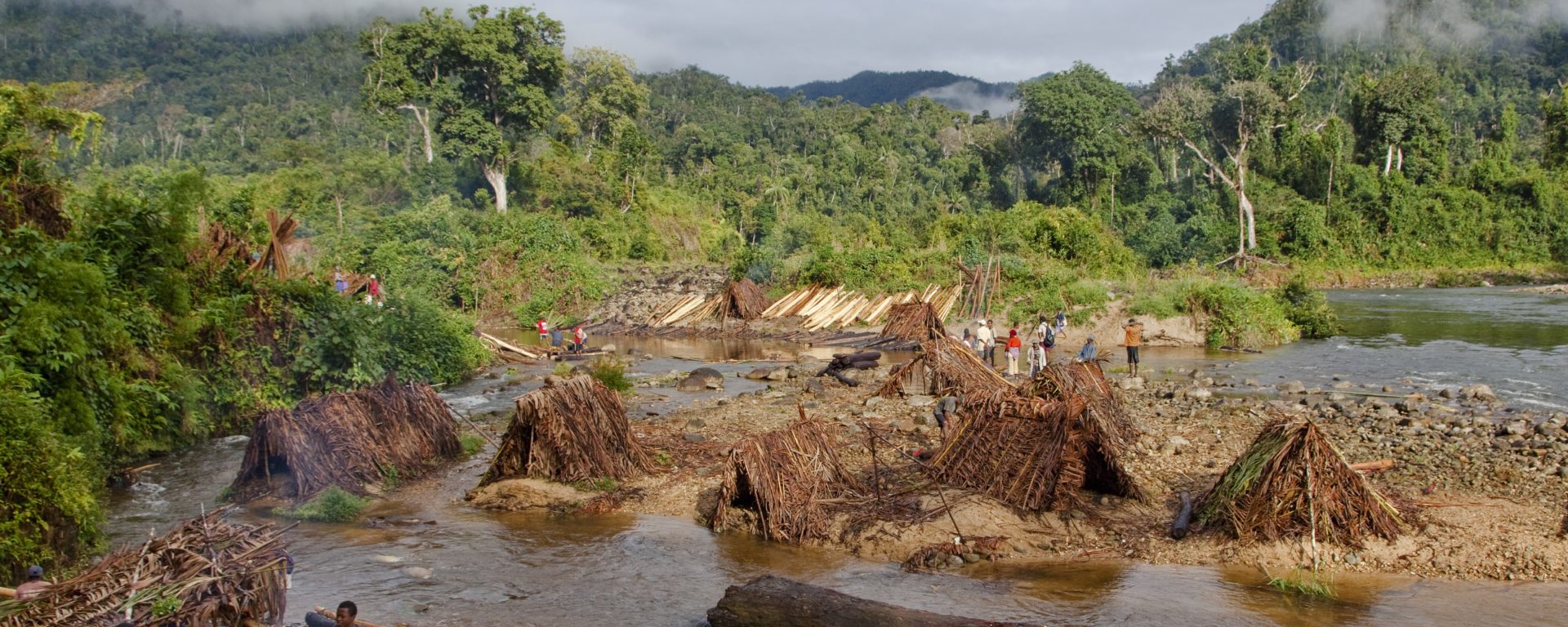Last chance saloon for Madagascar biodiversity
Madagascar’s exceptional biodiversity is on the wane. The country’s new president should seize the opportunity to save it.

The men lie perfectly still. Their beige and khaki gear do a good job of blending with the dusty ground; only their black, oversized cameras and lenses stick out. Every few seconds, salvos of shutter clicks reverberate around the camp, each trying to capture that perfect shot.
The object of the photographers’ attention is a camera-shy fossa, Madagascar’s largest predator, who has decided to shelter from the midday sun under the deck of the restaurant kitchen at Réserve Forestière de Kirindy. This protected area in Western Madagascar is a rare haven for wildlife in an otherwise highly endangered environment. The Menabe Antimena protected area, in which it sits, has experienced some of the worst rates of deforestation in Madagascar.

Kirindy is holding up, in part because it is operated as a scientific concession, but also because it is a very popular destination for tourists keen to witness Madagascar’s famed wildlife. The country is home to 5% of all known animal and plant species, the bulk of which can only be found there. But this unique asset is under severe threat from deforestation, trafficking and climate change.
A group of leading scientists, led by Professor Julia Jones of Bangor University, is now calling on President Andry Rajoelina, who was sworn in in January, to use his mandate to protect Madagascar’s biodiversity and prevent a catastrophic slide towards extinction. In an article published in Nature Sustainability on 29 April 2019, they argue that this would not only be a boost for the environment, but for the country as a whole.
Madagascar is desperately poor – 75% of the population lives on less than $1.90 a day – and although economic growth has picked up (it reached 5% for the first time in a decade in 2018), it is seldom inclusive, with many rural communities living at least a day’s walk from a road or health facility.
Ecosystems provide a range of services to the economy: forests ensure regular rainfall thanks to evapotranspiration from trees. This has become painfully obvious in Kirindy, where local villagers recently asked the reserve manager why it only rained over their forest. Forests also maintain soil structure and prevent erosion and flooding: anyone who’s taken an internal flight in Madagascar will have witnessed the island’s signature red earth leaching into the sea in river deltas. Bats keep agricultural pests under control. Coral reefs and mangrove forests are essential to maintain fish stocks; mangroves also act as sea defences against storm surges.
And biodiversity brings hard cash: tourism accounts for 17% of GDP and provides valuable revenue (from visa fees, taxes, national park permits etc) as well as numerous jobs, often in rural areas, in the form of guides, porters, cooks, waiters, cleaners, drivers, hotel employees and so on. The Relais de Kirindy, a fancy hotel right outside the reserve, fills up year-round with visitors keen to see Kirindy’s lemurs and fossa.

The scientists argue that Mr Rajoelina has a narrow opportunity to turn the tide against environmental destruction. They set out five measures he should take to bring it back from the brink.
- Tackling environmental crime. Illegal trades (rosewood, tortoises, lemurs etc) benefit a corrupt elite, destroy fragile ecosystems and greatly increase insecurity.
- Investing in protected areas. Although Madagascar’s protected areas aren’t perfect, they have slowed down deforestation in their perimeters. The country has a unique network of parks and reserves – investing in this exceptional asset would yield great returns in tourism as well as ecosystem services.
- Ensuring harmonious economic development. Madagascar desperately needs new infrastructure – roads, power plants (hopefully renewable), water and wastewater facilities, factories – but Madagascar’s law on environmental impact assessments in 20 years old and needs updating.
- Strengthening tenure rights for local people. Giving people a voice and a stake in conservation works. The law needs to change to make this easier.
- Addressing Madagascar’s fuel wood crisis. The vast majority of Malagasy use firewood or charcoal for cooking, a major factor of deforestation. Yet despite strong commitments to reforest, there have only been scattered initiatives to date.
Mr Rajoelina has made early moves on wildlife trafficking and is making the right noise about the environment (it is one of the 13 veliranos (pillars) of his electoral programme). It’s time for more actions. There is no disputing the fact that he faces many competing priorities. But promoting biodiversity would deliver long-term, inclusive growth, not to mention international kudos in an era of climate-deniers and environmental hypocrites. Professor Jones and her colleagues are throwing Mr Rajoelina a lifeline: if he really is a president of the people, and a man of his word, it should be a no brainer.
